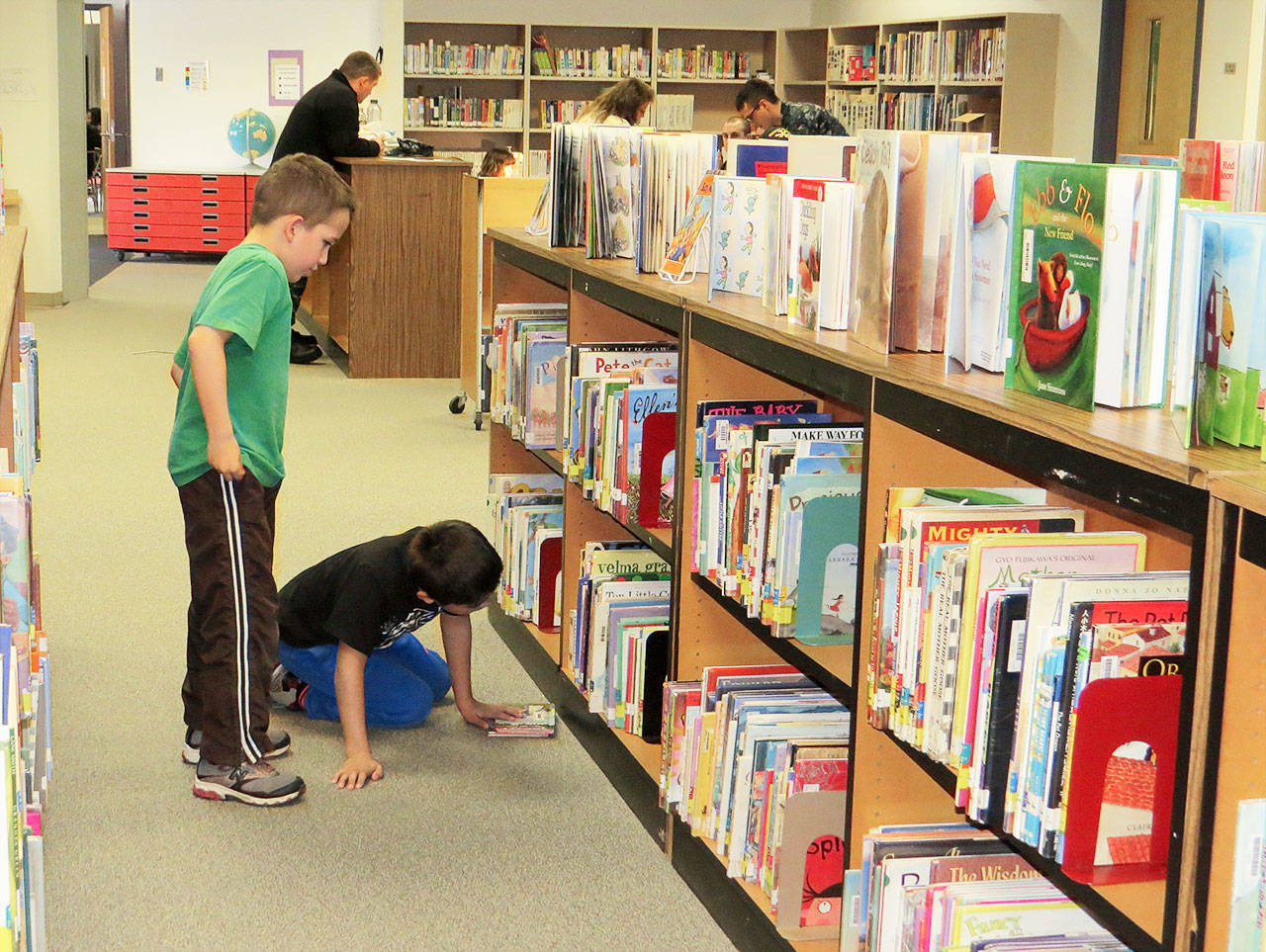Students at Crescent Harbor Elementary don’t wait for story time to crack open a good book.
As of last week, the kids read 4,282 books and 41.5 million words during this school year alone.
And the count increases every day.
Bill Montross, librarian of Crescent Harbor Elementary, said the school has been able to track the massive count through cooperation with a program developed by a company called Renaissance Learning.
The program, called Accelerated Reader (AR), pairs comprehension-based assessments with books that the assessments are about. If a book that a child has read is in the AR network, then that student can take the assessment.
“Almost every book in this library — we have about 14,000 right now — 98 percent are AR books with tests,” Montross said.
The tests, between 10 and 20 questions each, are designed so that only a kid who’s actually read the book can pass. So when a student passes the test, the title is logged as a read book.
The students earn points for every book they read, and those points are used in an interclass competition that drives interest in reading even further within the school.
“The teachers really started to engage the kids and celebrate that kids were completing tests…then it tuned into a competition,” said Kate Valenzuela, principal of Crescent Harbor Elementary. “Mr. Montross has supported it by creating a huge bulletin board celebrating the grade levels and the classrooms, and now it has become a much bigger deal.
“I think it is library support and staff engagement as well that have really helped this program take off.”
Valenzuela congratulated Montross further by affirming his decision to prioritize his library budget to make sure the school renewed its Accelerated Reader subscription.
“It’s all about promoting reading — that’s what the library is all about,” Montross said. “This is a program that really promotes reading.”
While Accelerated Reader has tapped into the competitive edge of students at Crescent Harbor, it has also helped facilitate some of the institution’s most global reading goals.
“We want (kids) to love reading, but we want them to also engage with the text, understand a text and be able to respond to that text,” Valenzuela said. “It’s two-fold: There’s the skill-based aspect of reading and then there’s just that love of reading, to want to pick up a book on the weekend, curl up on a rainy day and read instead of playing a video game.”
With schools across the county trying to figure out ways to get their kids engaged with reading, Valenzuela said AR has done all that and more.



